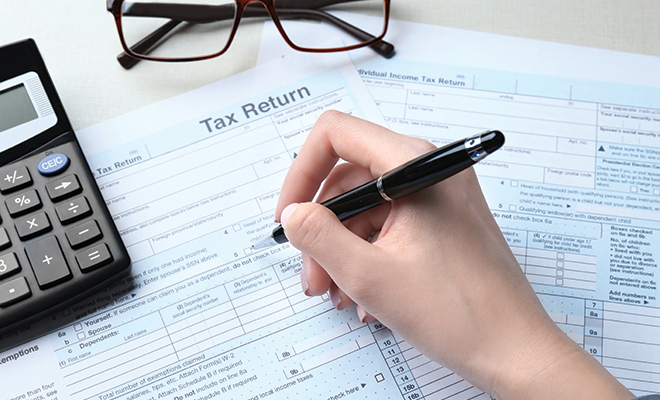
Strategies to Tax Savings for 2017
Many people don’t think about their taxes until tax time, from January to April. As a result, they often wait until the last minute to gather documents, prepare and file their tax return, and pay any taxes they owe.
Tax planning is something that ideally should be done throughout the year, and it is never too late to start. Think of it as part of your normal financial planning routine. Planning ahead is the best way to pay the least amount of income tax each year. Here are some ways to start planning now in order to minimize impact for your 2017 taxes.
Get Organized
Set up a filing system to keep your documents safe and easily accessible. Retain records of all receipts and transactions that may affect your tax return. However, keep in mind that most of the papers you need to document income, interest and withheld taxes come in the mail during January.
You can also set up a spreadsheet dedicated to tax records, as many records are paperless these days. Consider downloading and printing records throughout the year that are only available online for a limited time. The IRS recommends keeping tax records for three years in case of an audit.
Check Your Monthly Paycheck Withholdings
Most Americans receive a tax refund each year. While that may sound like good news, the truth is that most people pay an average of $200 too much in income taxes every month. Try adjusting your monthly paycheck withholdings to spread out your refund. Doing this means that you get a tax refund as part of your regular paycheck, instead of in one lump sum. If you would like to adjust your paycheck tax withholding, complete a new form W-4 and submit it to your employer, who will make the adjustment.
Understand Requirements for Tax Deductions
Consider itemizing deductions to reduce your taxable income instead of claiming a standard deduction. You may be able to lower your taxes by doing so. For example, if you buy a home or refinance a mortgage, you may be able to deduct interest, points and mortgage insurance premiums.
There are tax deductions available for families and parents, homeowners, employees, business owners, students, teachers, car and travel, charitable donations and more. It is important to keep receipts for qualified medical expenses, childcare expenses, unreimbursed work-related expenses and self-employment expenses in order to maximize your refund and in case of an audit.
Learn About Tax Credits
A tax credit is a dollar-for-dollar reduction of your tax liability that can reduce the amount of income tax you may have to pay. Tax credits change frequently, and they may save you hundreds or thousands of dollars on your tax return. Examples include credits for homeowners, credits for families/parents, credits for employees, medical tax credits, green energy tax credits and more. You can find a list of tax credits and deductions at irs.gov.
Contribute To a Retirement Savings Plan
If you have a 401(k), an employer-sponsored deferred income plan, try increasing your contributions to reduce your taxable income. Instead of making a larger contribution at the end of the year, spread out your contributions over more pay periods, which will reduce your take-home pay less.
Individual Retirement Accounts are another way to save for retirement and save on taxes. Instead of putting your money into a savings account, use an IRA. If you deposit money into a traditional IRA account instead of a savings account, the interest will accumulate tax free. In addition, contributions you make to the account each year may entitle you to a tax deduction.
Contribution limits are much higher for 401(k)s than IRAs, so many people prefer to use 401(k)s. IRAs also face income limits on tax deductibility or eligibility.
Consider Taking a Class
Tax service companies frequently offer classes at their neighborhood offices to teach people how to prepare their taxes. Community colleges also offer various tax courses, from introductory classes to in-depth studies that often require prerequisites. These classes are often much less costly than meeting one-on-one with CPAs, attorneys or financial planners. You can even deduct the cost of tax-related seminars, consultations and books.
Hire a Tax Preparer
If the idea of filing your taxes is too much for you, a professional tax preparer can ease your pain. If you currently use a tax preparer, ask her to show you areas on your last tax return where you could have reduced your taxes. Start shopping now to find a preparer with qualifications that you prefer. You can find a list of tax preparers in your area who hold professional credentials recognized by the IRS on their website.
Keeping up with taxes should be a year-round endeavor. These strategies can help you minimize your taxes and make filing your taxes each year a much less stressful situation. Plus, stay abreast of current events, as there may be changes coming to the tax code for 2018. ■
Sources: irs.gov, efile.com and accountingweb.com.







